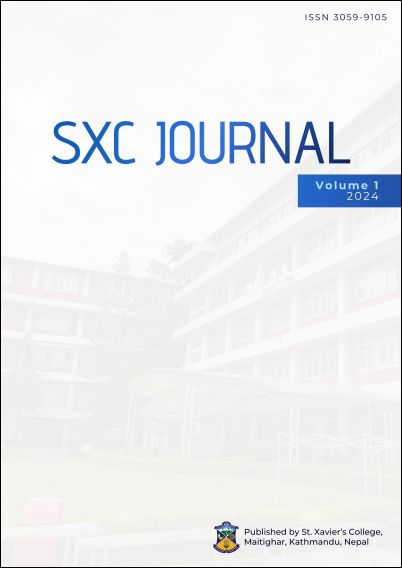Leadership Development and Emergence of Leadership Traits in Female Leaders in Nepal: A Narrative Analysis of Female Leaders of Private Organisations
DOI:
https://doi.org/10.3126/sxcj.v1i1.70869Keywords:
Leadership style, leadership traits, female leaders, leadership development, leadership in Nepal, barriers in female leadershipAbstract
Correction: On 21 November 2024, Table 1 (p.5) was corrected.
Female leaders practice a transformational leadership style which has been regarded and proved to be an effective approach in organizational settings. Despite several research findings adhering to the effective leadership approach adopted by female leaders, men still outnumber women in leadership positions. This research study delves into the leadership identity of Nepali female leaders, their effective leadership practice in organisations, and their leadership styles and traits. The research used a narrative identity framework, analysing the narratives of seven prominent female leaders in private organisations in Nepal. The result indicated that the leadership identity of these leaders was shaped by social (gender, corporate outlook) and family factors. Contrary to popular belief, these female leaders received strong support from their families and colleagues. These leaders demonstrated high emotional intelligence, were observant, cordial with colleagues, served as mentors, and had an ever-learning attitude that continuously enhanced their professional efficiency in a self-regulatory way. The combined effect of these interrelated attributes helped form six major leadership traits – empathetic, loyal and committed, adaptive, intuitive, team player, and resilient. These traits had a common foundation of being resolute and ethical and were strongly embedded in how they led and how they perceived their role as leaders in their organisations.
Downloads
Downloads
Published
How to Cite
Issue
Section
License
Copyright (c) 2024 The Author(s)

This work is licensed under a Creative Commons Attribution 4.0 International License.
This license enables reusers to distribute, remix, adapt, and build upon the material in any medium or format, so long as attribution is given to the creator. The license allows for commercial use.




